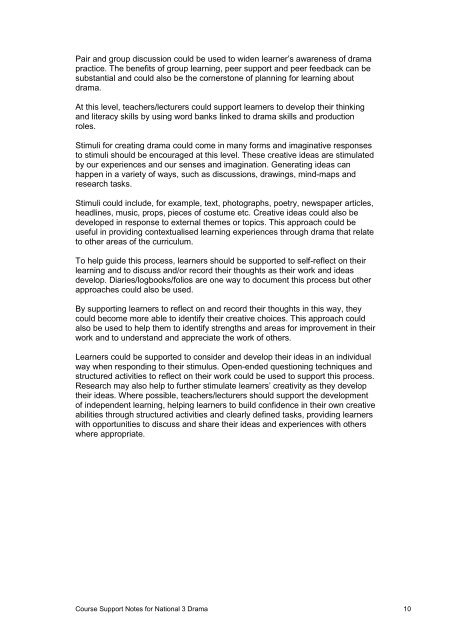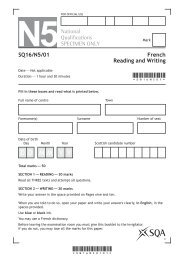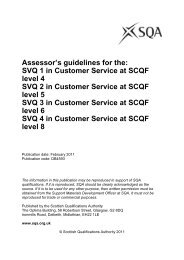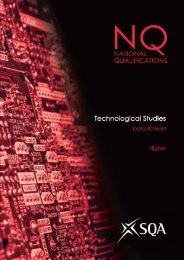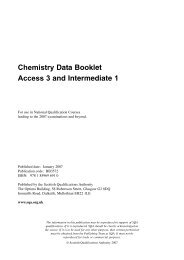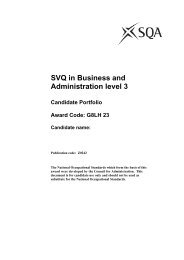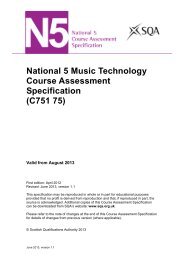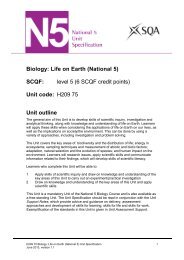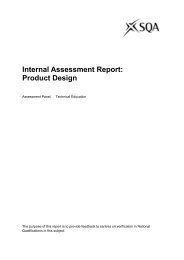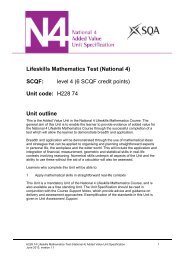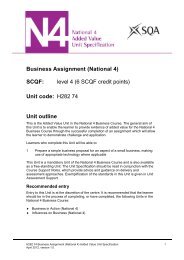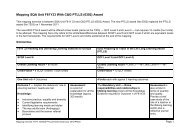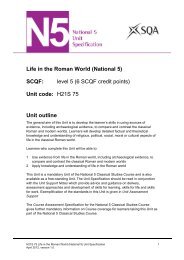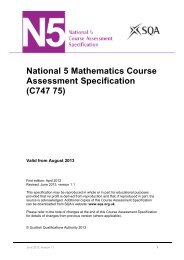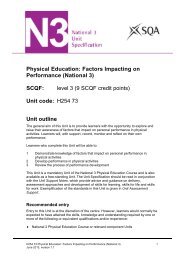National 3 Drama Course Support Notes - Scottish Qualifications ...
National 3 Drama Course Support Notes - Scottish Qualifications ...
National 3 Drama Course Support Notes - Scottish Qualifications ...
You also want an ePaper? Increase the reach of your titles
YUMPU automatically turns print PDFs into web optimized ePapers that Google loves.
Pair and group discussion could be used to widen learner’s awareness of drama<br />
practice. The benefits of group learning, peer support and peer feedback can be<br />
substantial and could also be the cornerstone of planning for learning about<br />
drama.<br />
At this level, teachers/lecturers could support learners to develop their thinking<br />
and literacy skills by using word banks linked to drama skills and production<br />
roles.<br />
Stimuli for creating drama could come in many forms and imaginative responses<br />
to stimuli should be encouraged at this level. These creative ideas are stimulated<br />
by our experiences and our senses and imagination. Generating ideas can<br />
happen in a variety of ways, such as discussions, drawings, mind-maps and<br />
research tasks.<br />
Stimuli could include, for example, text, photographs, poetry, newspaper articles,<br />
headlines, music, props, pieces of costume etc. Creative ideas could also be<br />
developed in response to external themes or topics. This approach could be<br />
useful in providing contextualised learning experiences through drama that relate<br />
to other areas of the curriculum.<br />
To help guide this process, learners should be supported to self-reflect on their<br />
learning and to discuss and/or record their thoughts as their work and ideas<br />
develop. Diaries/logbooks/folios are one way to document this process but other<br />
approaches could also be used.<br />
By supporting learners to reflect on and record their thoughts in this way, they<br />
could become more able to identify their creative choices. This approach could<br />
also be used to help them to identify strengths and areas for improvement in their<br />
work and to understand and appreciate the work of others.<br />
Learners could be supported to consider and develop their ideas in an individual<br />
way when responding to their stimulus. Open-ended questioning techniques and<br />
structured activities to reflect on their work could be used to support this process.<br />
Research may also help to further stimulate learners’ creativity as they develop<br />
their ideas. Where possible, teachers/lecturers should support the development<br />
of independent learning, helping learners to build confidence in their own creative<br />
abilities through structured activities and clearly defined tasks, providing learners<br />
with opportunities to discuss and share their ideas and experiences with others<br />
where appropriate.<br />
<strong>Course</strong> <strong>Support</strong> <strong>Notes</strong> for <strong>National</strong> 3 <strong>Drama</strong> 10


